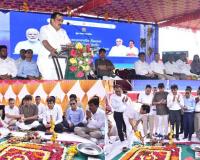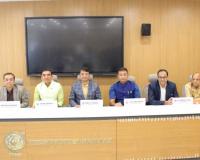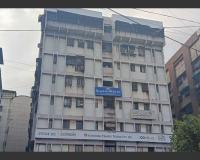Surat Industries Raise Alarm Over Hike in Power Tariffs During Peak Hours

Surat, 22 June – Discontent is growing among industries in South Gujarat following the recent increase in electricity tariffs, particularly during peak hours. The hike of 45 paise per unit on both High Tension (HT) and Low Tension Mega Demand (LTMD) connections has sparked concern within the business community. In response, the Dakshin Gujarat Chamber of Commerce and Industry (SGCCI) convened a key meeting of its DGVCL Power Committee on Saturday to address the issue.
Chaired by SGCCI President Nikhil Madrasi, the meeting saw participation from committee head Mayur Golwala, Vice President Ashok Jirawala, and several prominent industrialists. The members unanimously resolved to escalate the matter to Gujarat’s Energy Minister and relevant departmental authorities.
Previously, the additional charge of 45 paise per unit during peak hours was applicable only to HT connections. However, beginning June 2024, the same rate has now been extended to LTMD consumers as well. As a result, many industrial units have begun receiving significantly increased electricity bills for the past six months, leading to a state of unrest across the sector.
The designated peak hours are from 7:00 am to 11:00 am and from 6:00 pm to 10:00 pm, during which additional charges are applied to energy consumption. Industrialists, particularly those from the textile sector, strongly objected to this classification, arguing that round-the-clock operations should not fall under peak-hour billing.
Ashok Jirawala emphasized that the textile industry, which operates 24/7 and is the second-largest employment generator after agriculture, deserves special consideration and exemption from peak period categorization. Meanwhile, Mayur Golwala criticized the power department for abruptly implementing an outdated circular and issuing inflated bills without prior notice. He pointed out that many factories still use outdated meters incapable of recording peak-hour data, resulting in average billing that he termed unfair and arbitrary.
Golwala further highlighted that weaving units operate with thin profit margins of merely 25 to 50 paise per unit, and any increase in power tariffs under the guise of peak hours could severely jeopardize their survival.
The meeting concluded with a plan to compile detailed data and assess the financial burden on industries. A delegation from the Chamber will soon meet state-level energy officials to present the concerns and advocate for policy reconsideration.
Industrial stakeholders in Surat hope that the government will acknowledge the sector's grievances and offer relief, particularly for the textile MSME segment, which continues to be the backbone of the region’s economy.






